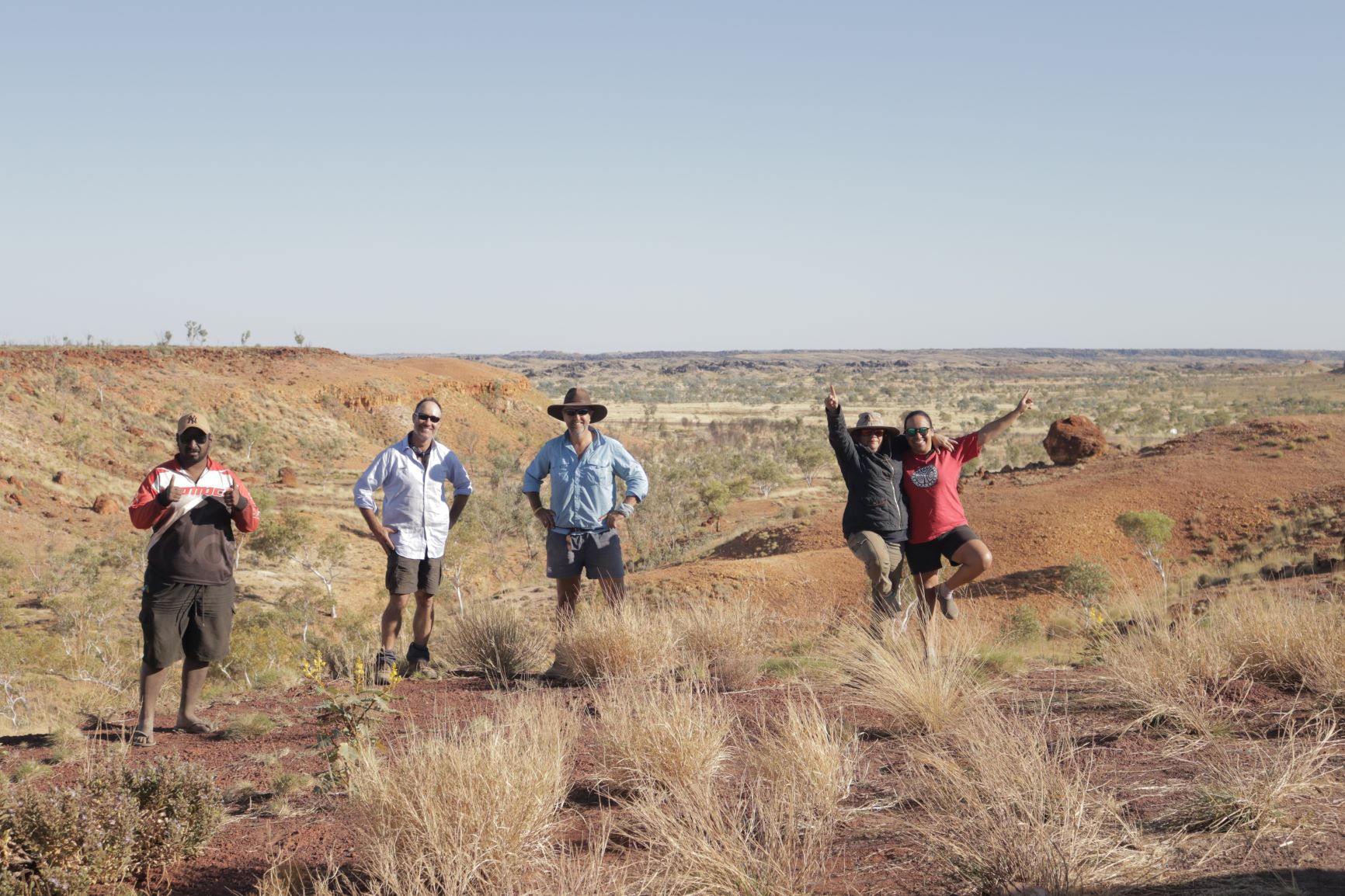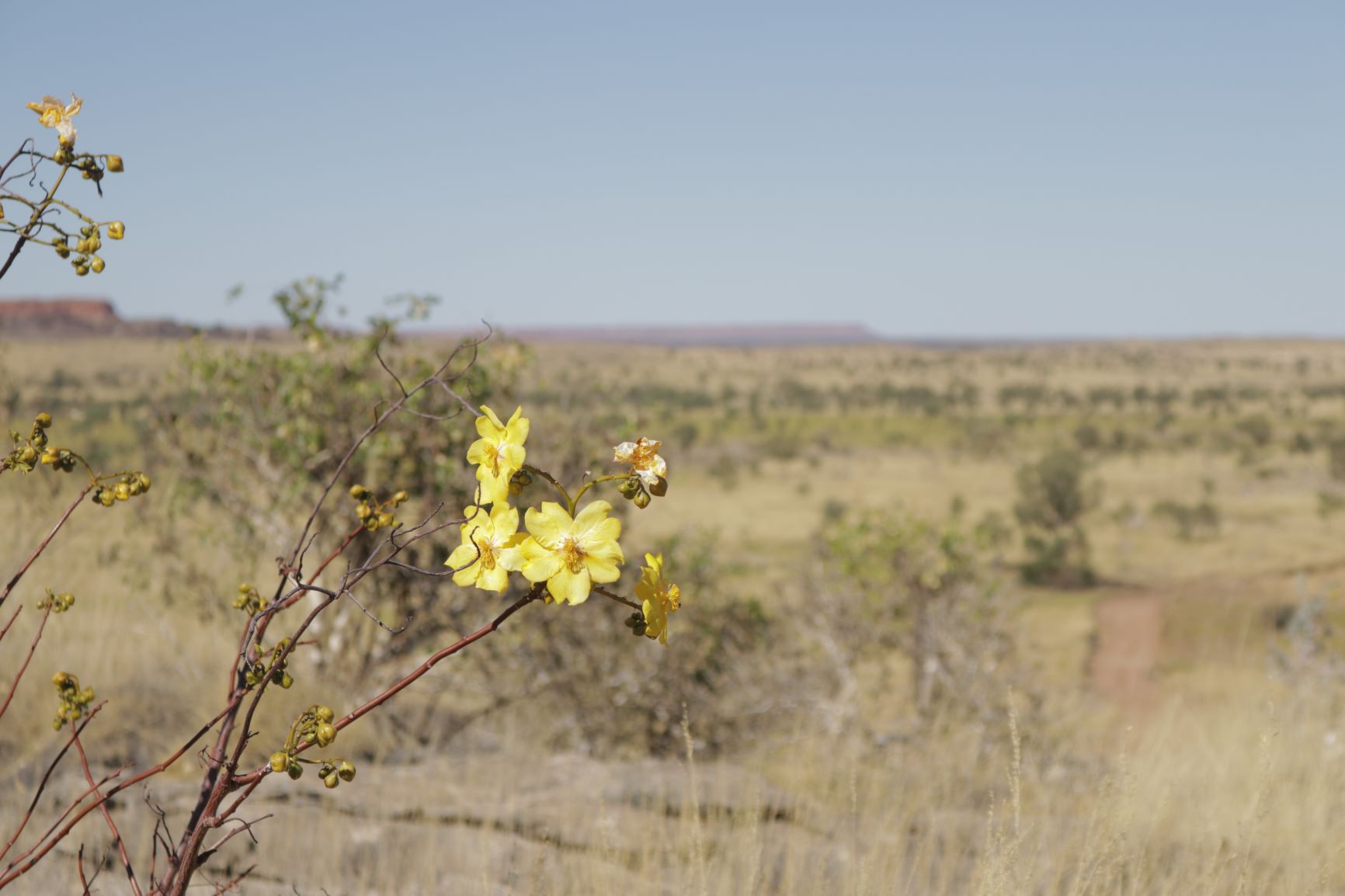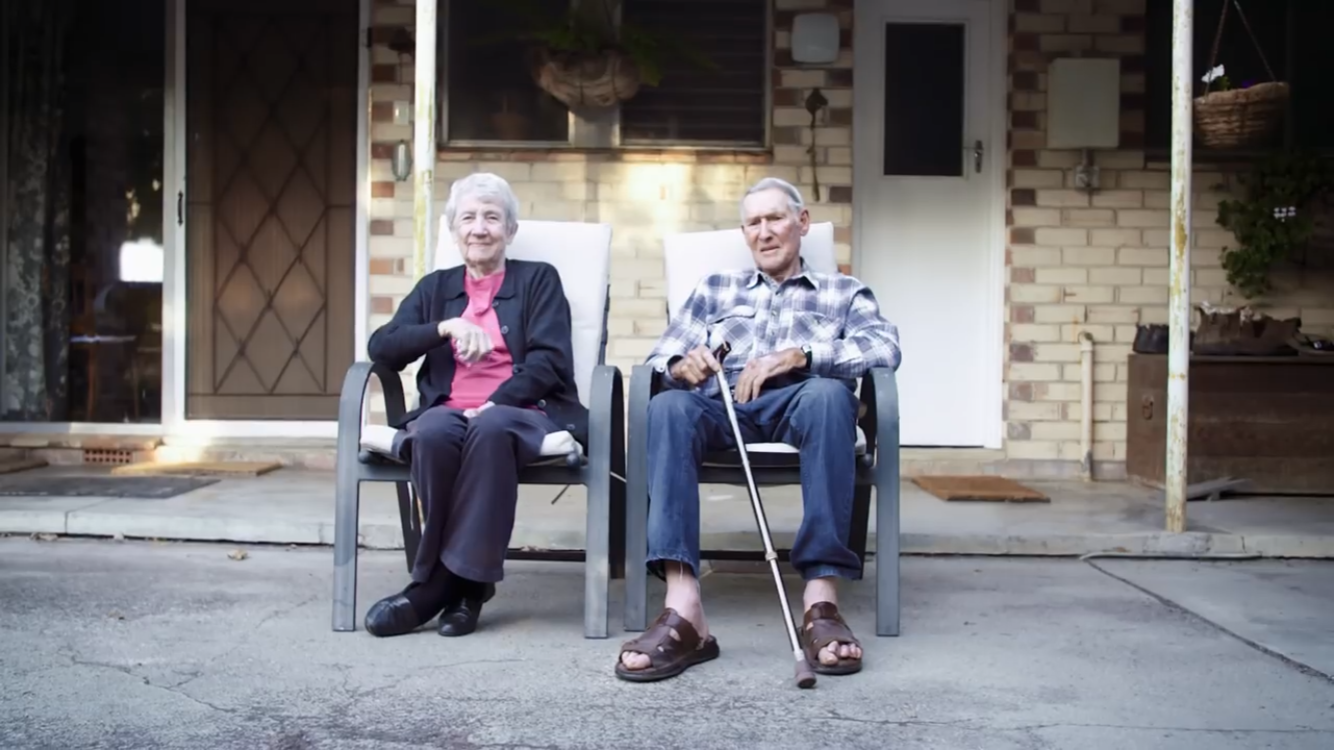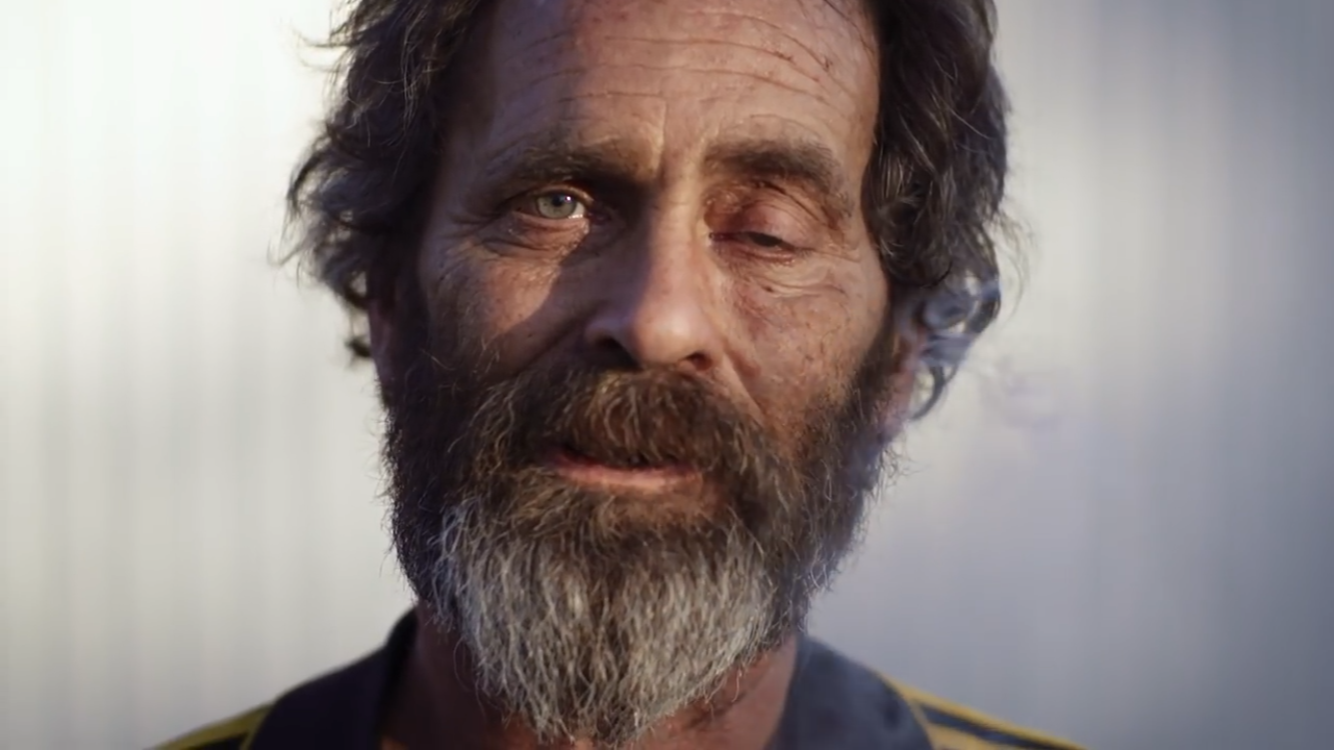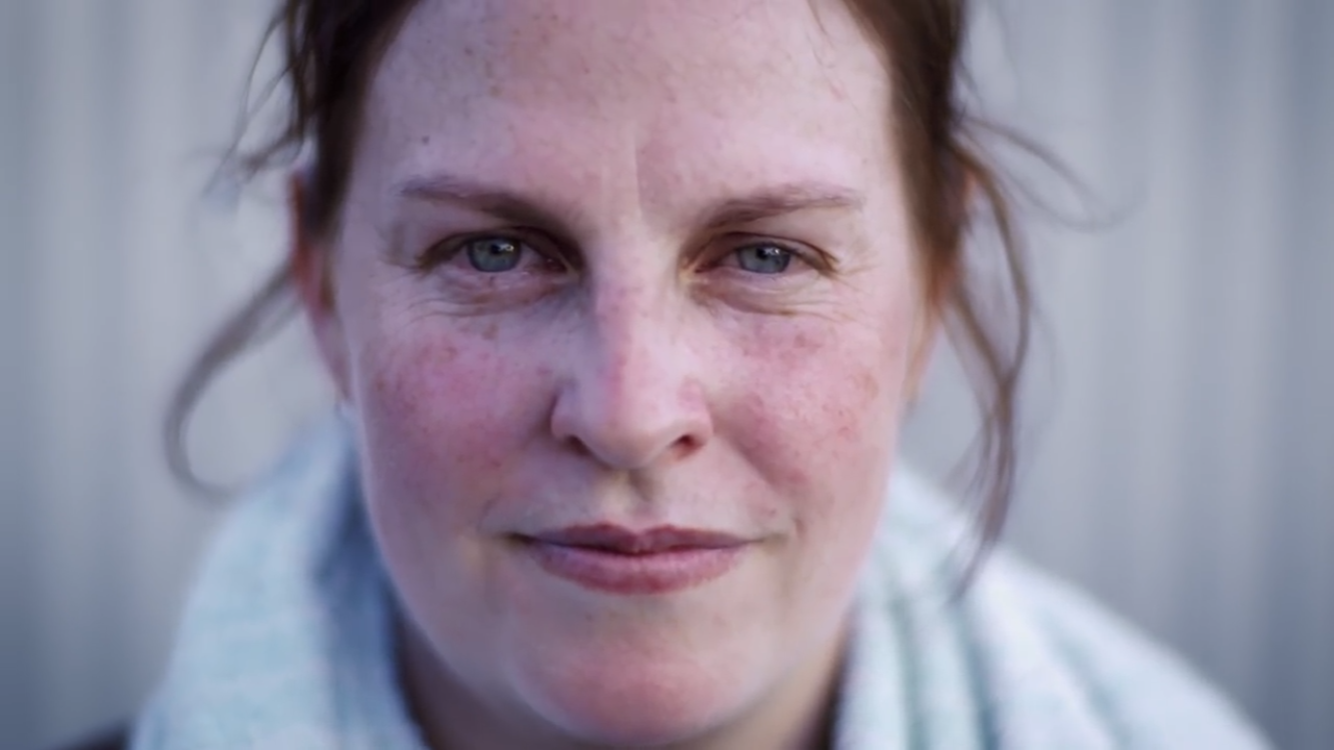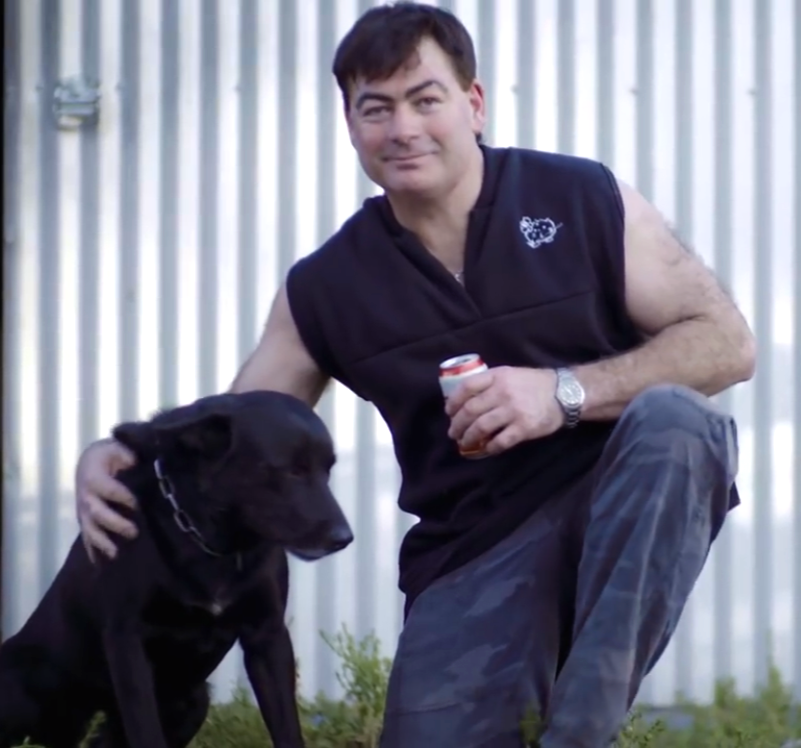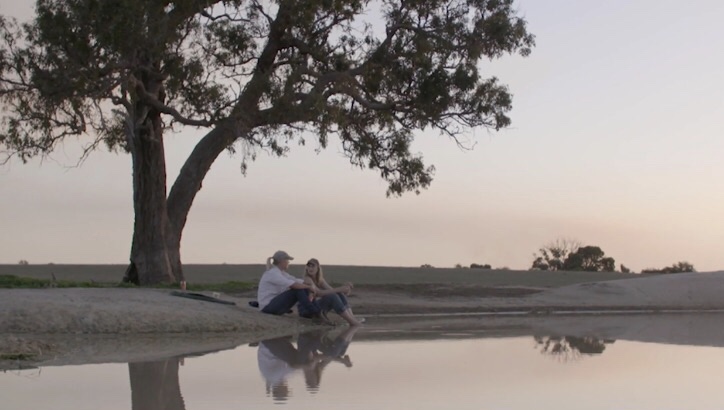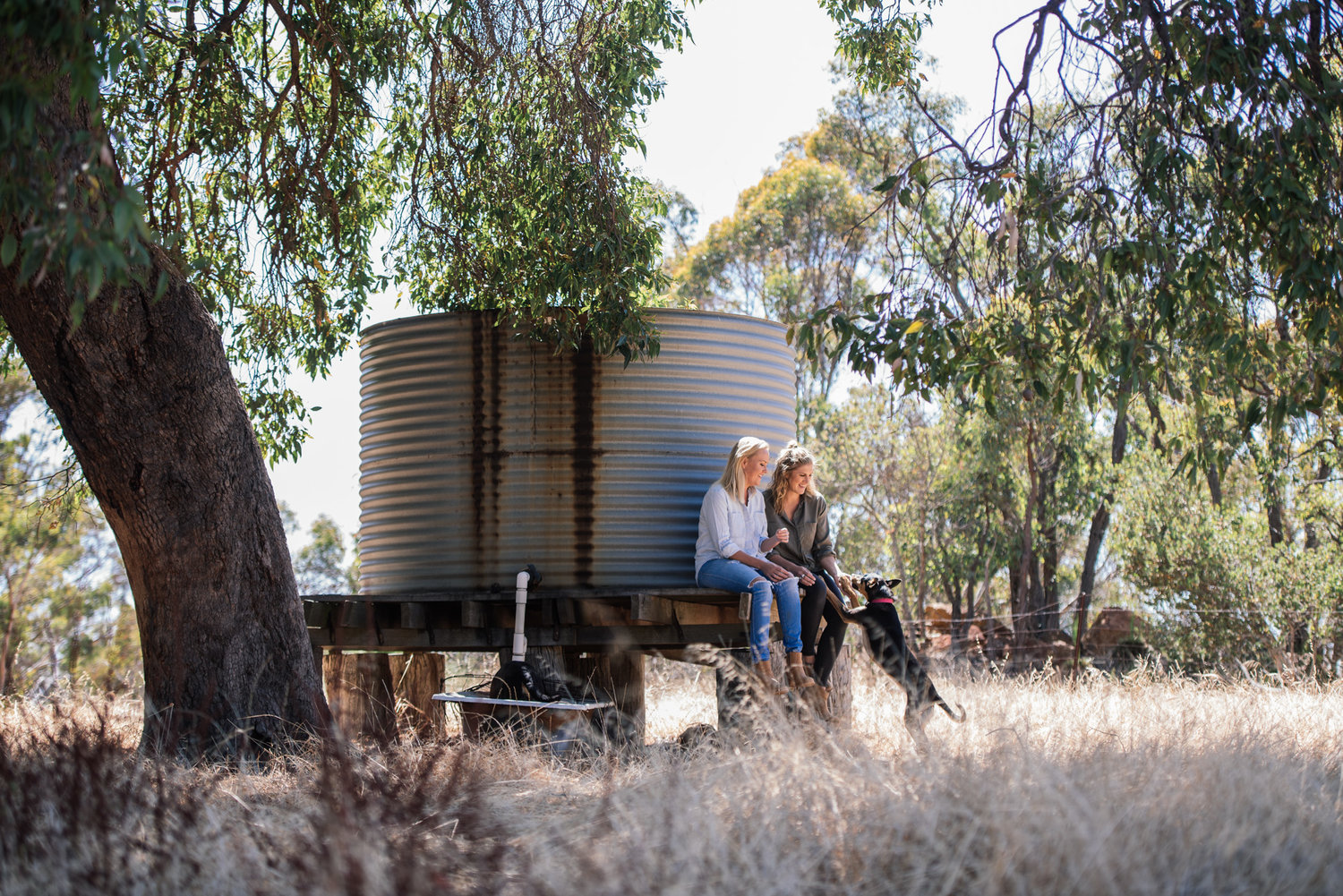Red Dirt Reflections
by Bec Bignell
The red dirt of the Kimberley is otherworldly - it instantly transports you far from monotonous modern life. It’s deeply rich and humbling. Against the textured backdrop of sheer gorges, startling sunsets, tranquil trees, sacred stones and dramatic rocky outcrops, i’m reminded of my insignificance. I’m as small and unimpressive as the pesky spinifex snagged in my sock. When the sun sinks into the red dust and the moon climbs into the night sky the cyclical process of life is blaringly obvious without city distractions. I’m estranged from the incessant need to run and i’m grateful for the moment of magnitude. I stop. I’m still. There’s something strangely comforting about acknowledging that it’s all part of a much bigger programme that goes on with or without you. It gifts an endless sense of time that outweighs worries, anxieties, insecurities. The pressure is removed, and it pivots my perspective.
The natural grounding experienced when you’ve got dirt underfoot keeps you balanced. My bush background means I’m acutely conscious of when I’m out of whack and wavering over the ground, not anchored to it. I’m constantly drawn back to the country and believe there’s no better place to access your imagination. The limitless space, the colourful characters, unique experiences and isolation makes for a profound story-telling environment. My days were spent penning plays in the nook of a shearing shed, creating poems while dragging a rake of fire across stubble and dreaming up monologues during endless circuits of paddock stick picking. At a young age, I felt a very keen sense of injustice about the lack of available artistic resources and commitment to cultivating the talent, story tellers and creative spirits in the sticks. Parents did their very best to drive to performances, drama competitions, plays and workshops but no matter how many kilometres we overcame, we did not enjoy the creative abundance our city counterparts had at their fingertips. It’s this inherent belief in the artistic potential of stories and storytellers in the sticks that has always driven me.
Photo: Michael Smith
Our vision is about growing new media from the ground up, inviting people in and skilling local people up across the areas of film, design, photography, media, writing, acting, events and arts. We’re focused on sharing regional perspectives to extensive audiences, so people connect to the humanity bound within the work and are not distracted by popular assumptions about regional people. We’re dedicated to growing the Rural Room community to make regional areas a first stop (not an afterthought) when it comes to involvement in all areas of the arts. I believe regional voices remain grossly underrepresented on the national stage and I’m dedicated to promoting the increased support required to cultivate the talent and empower regional creatives, so they can remain within their local communities and dually access equal creative opportunities provided to city people. I’m passionately averse to the practise of providing extensive funding to major city-based media companies who descend on regional communities to tell regional stories under the guise that the impact will provide significant ‘tourism and economic benefits’.
When I move around the regions I frequently discover that communities don't feel genuinely included in projects led by major city organisations and that the return on investment or intangible ‘tourism’ impact is subpar. Importantly, the content we develop, share and create is generated by regional people so the perspectives are very raw and real. We’re committed to developing a sustainable approach to storytelling within communities, so people don’t feel cheated after a major creative project moves on from their town. Our model is focused on casting locals in major roles (not as extras), extensive workshops (including performance, production, writing, marketing, photography) and mentoring programs to nurture creative aspirations over time. We’ll create pathways for people to legitimately pursue their own creative ventures in their own communities, with an aim to feed creative expertise back into the communities so regional people can take back the power to tell their own stories and feed the profit from creative ventures back into their local regions.
I’m not wearing rose coloured glasses, I’m fully aware of the complexities and challenges ahead. However, I owe it to the Rural Room audience to champion this cause and I’ve been extremely humbled by early support shown by companies such as the Australian Rural Leadership Foundation, Telstra and Australian Wool Innovation who have seen the potential in our work and whole heartedly believe regional creatives and stories should be heroed. I travel between regional and urban worlds representing Rural Room to encourage city business to support stories from the sticks at a high level, year round. At present, the drought has inspired a momentary, mass acknowledgement of the struggles in regional Australia. While it’s great to see the bush finally receive hard hitting coverage, the drought is not a spontaneous media event but a debilitating issue that haunts long after the outside broadcasts breeze in and out of town.
The tokenism assigned to regional Australia is frustrating for many, and the romanticism that’s rolled out to capture hearts from time to time does little to really re-connect. In an age where the provenance of agricultural goods is often overlooked and the connection to country seems largely lost it’s important we retain a high level of support for regional issues ongoing, well beyond the periodical pulling of heart strings for the sake of the news cycle and government box ticking. The positive stories of impressive local ventures, ingenuity, friendship, character, creativity, regional resilience, environmental rehabilitation and community connection are just as important, and they should be given equal airtime all the time.
At present, I'm back on the farm to continue community consultation as we bring ‘Rain Dance’ to life. A common trend I observe out here is that regional projects often don’t attract high level exposure as country people are not inclined to self-promote. Largely, their humility and ‘get it done, no fuss’ style means many of their projects and stories slide under the radar. Rural Room endeavours to share these projects with wider audiences across our extensive platforms. Our July feature highlighted two Media Stringers from regional Queensland; Kirstie Davison of MaRiKi Media, and Lisa Alexander of Lisa Alexander Photography, to showcase their collaboration on a major interactive multi-media exhibition that brought the stories in their community of Blackall to life. Over the weekend I drove to Hopetoun to spend time with Rural Room Co-creator, Gab Major, to attend the Our Photo Stories exhibition organised by Astrid Volzke.
Photo: Pieter Badenhorst
As I reflect on my time in the Kimberley’s I’m reminded of the most poignant story reservoir embedded within red dirt – the stories of the first people. ARLP includes a strong cultural stream that unapologetically focuses on the realities of the Australian Aboriginal people and their stories lost. Complex and open discussions led by Rob Watson served a stark and sickening realisation about the impact of settlement on Indigenous culture and the blatant refusal of Australian society to acknowledge a history that hurts. The ability to manipulate historical accounts and preferentially select stories shared has a devastating impact that can erode entire cultures, erase people, conceal the past and perpetrate a dangerously homogenous eye to the future. While we were in the Kimberley’s our cultural guide, Jermaine, graciously exchanged stories of the area and the land. Jermaine is artistically gifted, he paints beautifully, sings and has a gentle charisma which was aspirational to all of us. He shared stories of the caves, the Mimbi dreamtime story of, ‘The Blue Tongue Lizard and the Mudlark’ and as we walked through the country he would stop to impart micro stories about the landscape, the flora, fauna and his people. He was so composed and connected when he shared these stories that he made us recognise what it truly means to talk with considered purpose and speak from the heart.
We were in awe of the 200 images, which were complemented by a multi-media presentation created by community members from Hopetoun, Ravensthorpe, and Esperance through Astrid’s travelling photography workshop. A bottle of champagne was popped on arrival to celebrate Astrid’s birthday and to toast exciting news that the West Australian Government had agreed to reverse their decision to slash funding from the state's Community Resource Centres (CRCs). They had initially planned to reduce funding by 40 per cent to the CRC network but the outrage relayed in community discussions following the announcement prompted the revision. The celebration was especially heartfelt given the surrounding CRCs played an integral role in bringing Astrid to the community; a real-time example of their value. How is there virtually no genuine connection or consultation undertaken prior to these decisions? Were there no learnings in the wake of the School of the Air backflip earlier this year? How difficult is it to engage with local communities in this digital age? Audience input mandates our Rural Room work, we’re focused on acquiring upfront perspectives as we believe it’s the only way to unlock cognitive diversity in stories told and shared.
Photo: Wayne Champion
The importance of sharing regional stories and untold voices is critical for soft diplomacy and preserving culture. I believe the impact we can collaboratively make to employ regional creatives, share their stories and empower people to tell their own stories will not only benefit regional people but will also enhance a greater national understanding that will bring Australian people closer together. Some stories have been sitting dormant waiting to be told for many years, others are like young seedlings bursting to grow. This week we’re announcing another major creative partnership which will elevate inspiring stories about regional artistic projects occurring state wide in Western Australia to shine light on the talent and their respective artistic processes. It’s extremely heartening to uncover these hidden gems in the crevices of the bush and our work as storytelling geologists has only just begun.
I’d like to take this opportunity to thank Matt, Jacqui, Monique, Graham, Matilda, Phillipa, Andrea and the team at Australian Rural Leadership Program for the incredible opportunity to be a participant in course 25. Applications for course 27 can be found at http://www.rural-leaders.org.au/ A big thanks also to Sheryll and the team at Outback Initiatives especially our brilliant facilitator Mike and also Karim, Kevin, Ali, Marcus, Leith, Liz, Jermaine and a special shout out to my team Fiona, Jack, Pieter, Dave and Emma. I’d also like to sincerely thank Telstra for sponsoring me to participate in ARLP and for the overwhelming support of our Rural Room and Rain Dance vision. An earnest thanks to Marnie for sacrificing her own personal time to come to Darwin to show her commitment to my journey.
Thanks also to the inspiring Media Stringers and the beautiful Rural Room community and participants.

